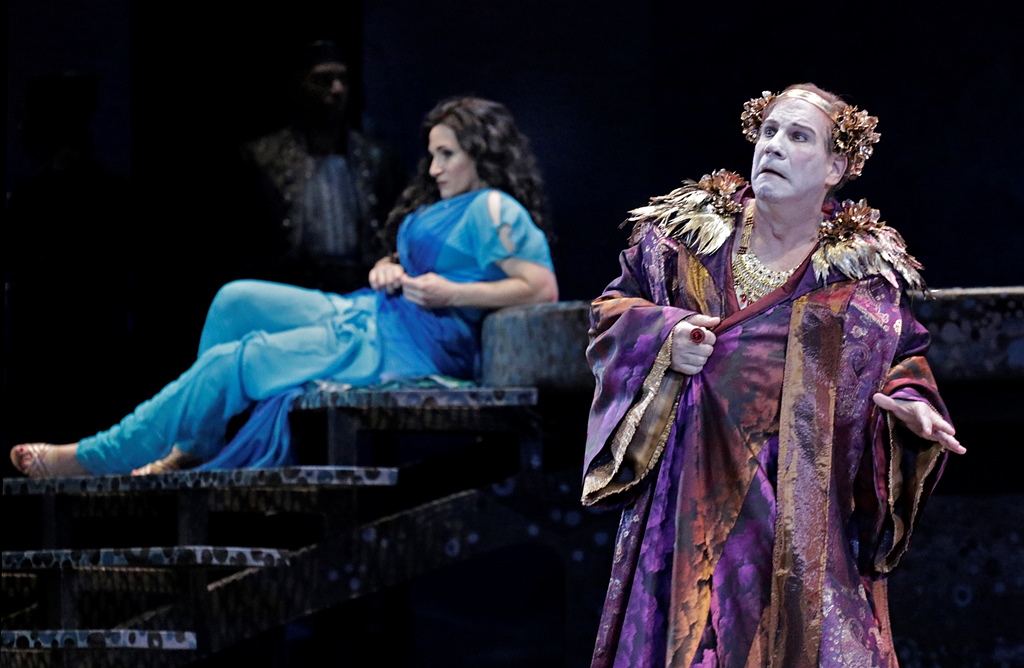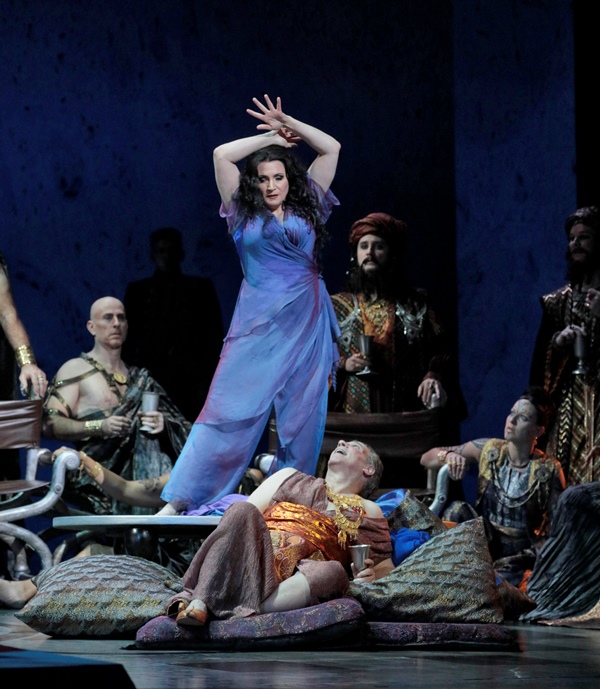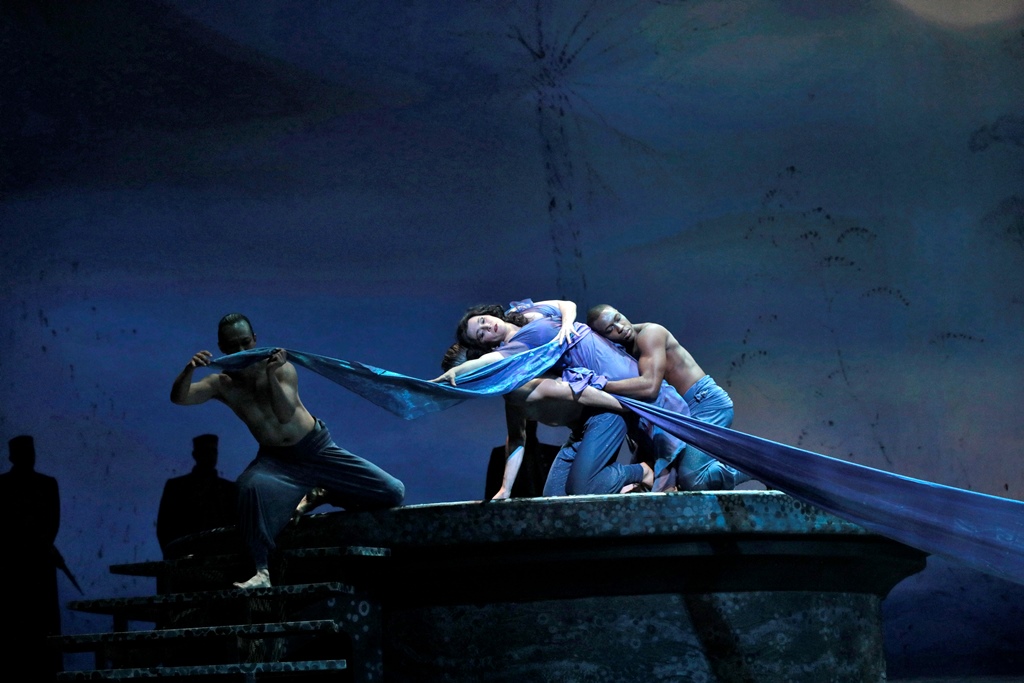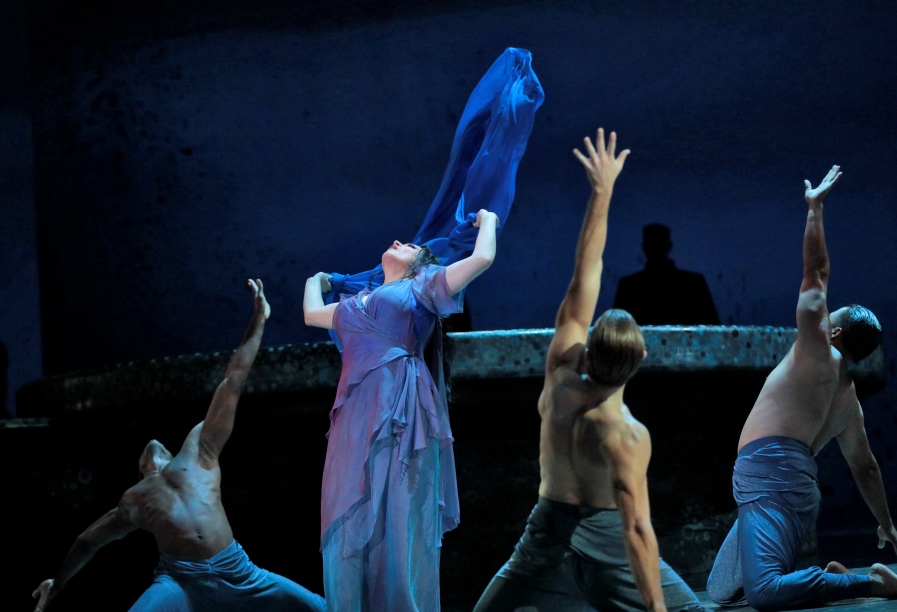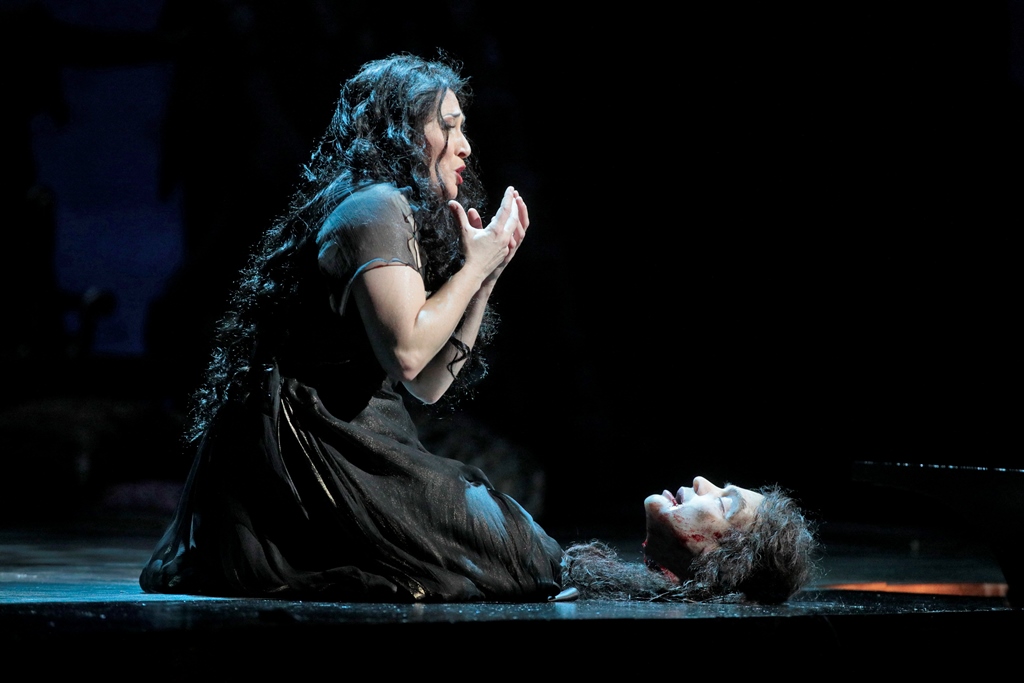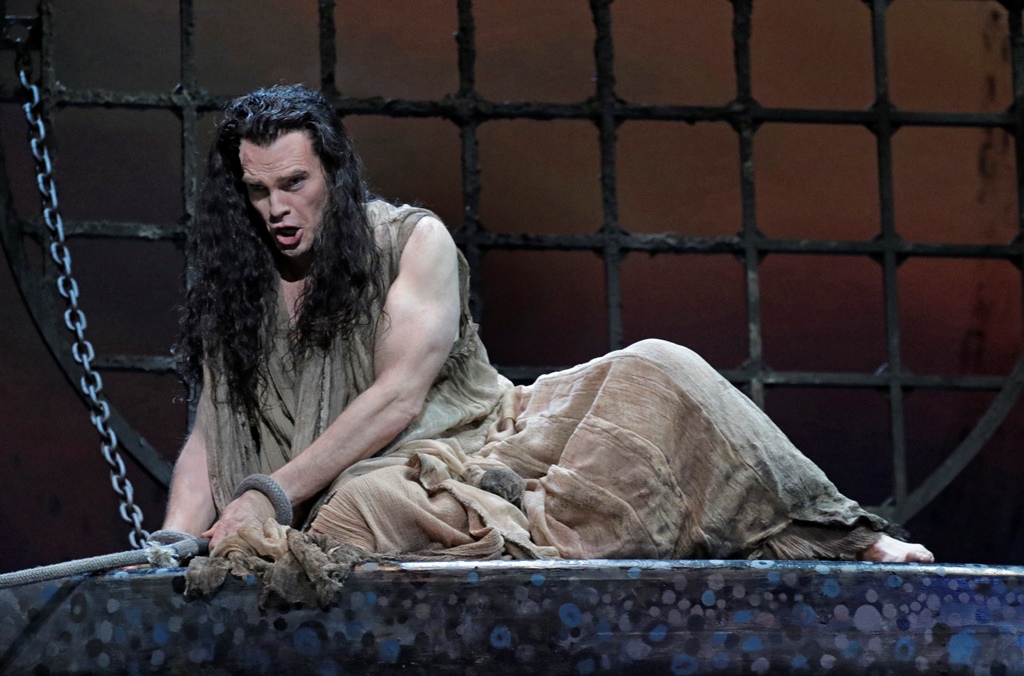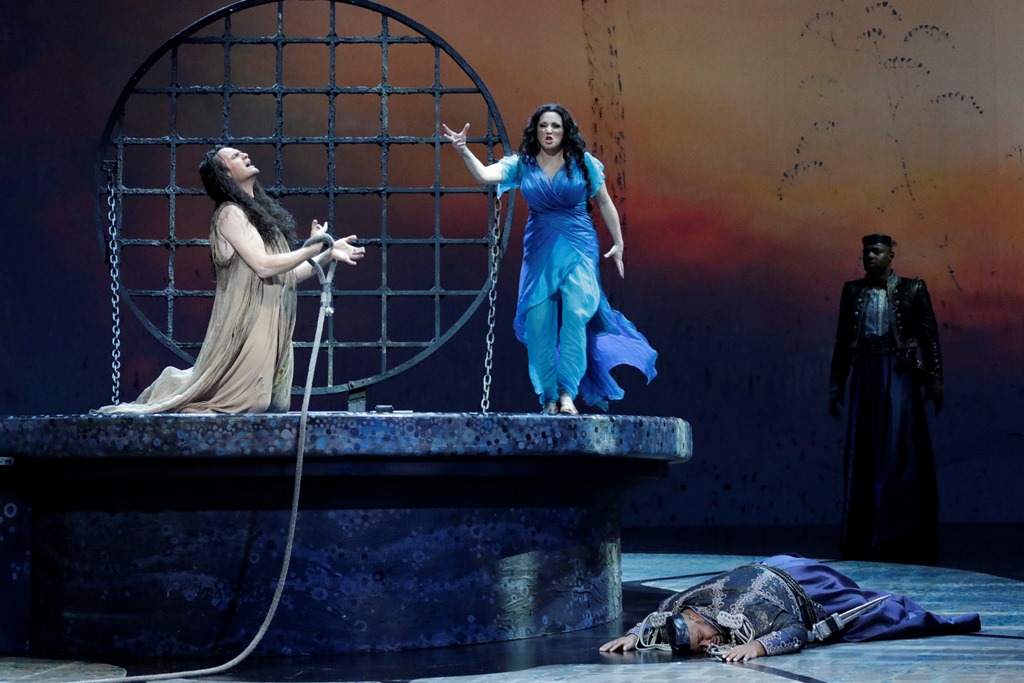L.A. Opera revives legendary “Salome” with soprano Patricia Racette
/By Truman C. Wang
2/28/2017
All photos by Ken Howard, Los Angeles Opera
Los Angeles Opera’s famous 1986 “Salome” production by Sir Peter Hall has been extensively refurbished and is looking every bit as new as the Orient Express set for the “Abduction from the Seraglio” that has just concluded its run. The Impressionistic, watercolor painted backdrop features a desolate landscape with a few lifeless trees and a supersized moon looming ominously over the horizon. ‘I am sure bad things will happen’, says the frightened Herod to his entourage – costumed in decadently garish colors contrasting sharply to the gloomy background. To the stage left sits a giant cistern, from which John the Baptist will emerge to set in motion the wheel of evil and perversions with deadly consequences.
First performed in Dresden in 1905, Richard Strauss’ ‘Salome’ still shocks us today not only for its overt display of adolescent sexuality (Salome-Jochanaan) and underlying theme of pedophilia (Herod-Salome), but also for its music of seemingly incongruous beauty that drapes and drips all over the bloody Biblical drama. Conductor James Conlon effectively played a symphony without drowning out the singers, despite the composer’s own famous admonition – ‘Louder, louder! I can still hear the singers!’ The tempos were flexible and elastic for the monologues of Salome and Jochanaan; the orchestral colors were luxuriously rich, and the woodwinds were deliciously wicked in their erotically charged trills and slithery lines. Mr. Conlon is one of those rare conductors who can comfortably play the dual role of a symphonist and a singers’ conductor.
American soprano Patricia Racette sang, acted and danced the role of Salome in a tour de force performance. She has previously sung the Princess of Judea in Pittsburgh and at the Met, so she arrived in L.A. with all guns blazing, playing Strauss’s oversexed adolescent with ravenous ferocity. At age 51, Ms. Racette still sounds and looks fabulous, requiring little suspension of belief on the part of the opera-goer. Her powerful, gleaming voice in the Final Scene with the head of Jochanaan was full of silky belcanto, plus a bit of verismo (grunts and snickers) thrown in for good measure. This Salome intimidates more than she seduces, and that also translates into an unusually aggressive ‘Dance of Seven Veils’ (choreographed by Peggy Hickey) featuring three shirtless male backup dancers who jumped and spasmed all over the place, goading along Racette’s Salome to act out her adolescent aggression and sexuality. The obligatory nudity in modern “Salome” productions – started, incidentally, in 1986 by Maria Ewing in L.A. – adds nothing to the drama but certainly sells tickets. Strauss himself was said to have wanted a “thoroughly decent dance, as if it was being done on a prayer mat” (letter to producer Erich Engel, 1930). Nonetheless, for the record, it has to be noted that Ms. Racette’s state of undress was probably the longest in operatic history, lasting some 10-plus seconds.
The supporting cast were all uniformly strong with two standouts – Icelandic baritone Tómas Tómasson’s compelling Jochanaan and baritone Kihun Yoon’s plangent-toned First Nazarene. Tenor Issachah Savage sang the lovelorn Narraboth believably. Dramatic soprano Gabriele Schnaut’s Herodias was a piece of luxury casting who had little to do other than pacing about and mocking, berating Herod for ‘always staring at Salome’. Tenor Allan Glassman played King Herod brilliantly as a comically dim-witted character but still sang with a full regal bearing. His befuddled expressions in the ensemble with Five Jews were priceless.
Director David Paul did an admirable job not only directing stage traffic, but also creating memorable vignettes such as the moment of shock when Narraboth kills himself, or a pouting Salome acting out her frustrations during a short orchestral interlude after being spurned by Jochanaan. Throughout the opera, the director showed great respect for the music and enhanced the drama even further as if that was possible.
Remaining performances of "Salome" are on March 2, 5, 16, 19. Visit www.laopera.org for tickets and more information.
Truman C. Wang is Editor-in-Chief of Classical Voice, whose articles have appeared in the San Gabriel Valley Tribune, the Pasadena Star-News, other Southern California publications, as well as the Hawaiian Chinese Daily.



